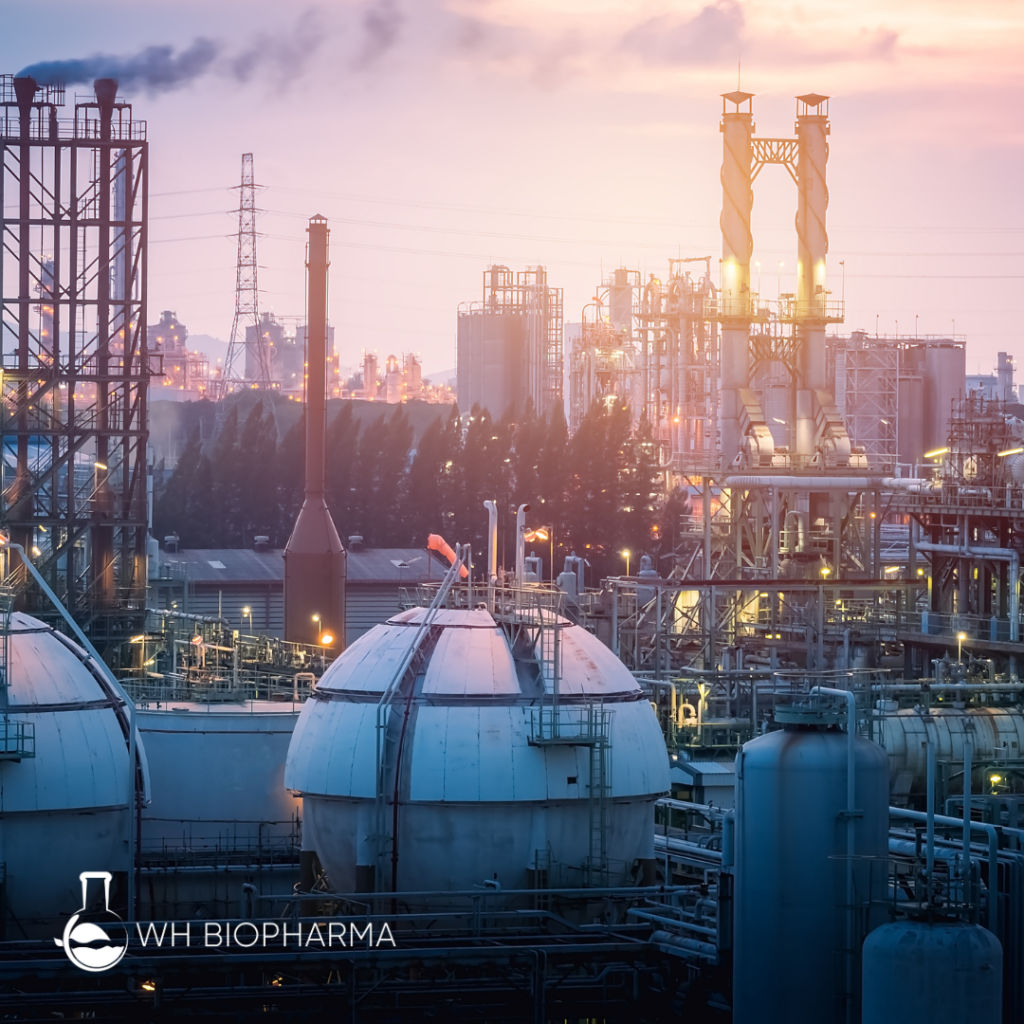The chemical manufacturing industry, a cornerstone of modern economic development, plays a vital role in providing the materials and products that support various sectors. However, the industry is also associated with significant environmental challenges, including greenhouse gas emissions, energy consumption, and waste generation.
In recent years, there has been a growing recognition of the need for sustainable practices in the chemical manufacturing sector. This article explores the various dimensions of sustainability in the chemical manufacturing industry, from green processes to circular economy initiatives, and examines the trends in how the industry is adapting to meet the demands of a more environmentally conscious future.
Embracing Sustainable Production Processes

The chemical manufacturing sector, known for its pivotal role in supplying materials crucial to various industries, has traditionally been associated with challenges related to greenhouse gas emissions, reliance on natural gas, and the use of carbon-intensive processes.
With many chemical companies at the forefront of producing commodity chemicals, construction chemicals, and inorganic raw materials, the urgency to address these environmental concerns has never been more pressing.
As the demand for chemical products continues to soar, chemical companies are increasingly recognizing the imperative to adopt sustainable production processes, mitigating the environmental impact of their operations and contributing to a greener future.
The industry’s intricate supply chains, spanning many segments from raw material extraction to further processing, play a crucial role in shaping the sector’s environmental footprint, necessitating a holistic approach to sustainability.
In recent years, the chemical manufacturing industry has witnessed a notable surge in efforts to adopt more sustainable practices. This transformation encompasses a wide spectrum of initiatives, from reducing carbon-intensive processes in petroleum refining to exploring bio-based alternatives and enhancing the recyclability of packaging materials.
The evolution towards sustainable production processes not only aligns with global environmental goals but also positions chemical companies for economic resilience and competitive advantage in a marketplace increasingly valuing eco-conscious solutions.
In this context, the integration of artificial intelligence, biotechnology, and advanced data analytics is reshaping chemical processes, offering innovative ways to achieve both environmental stewardship and industrial and economic growth. This article delves into the multifaceted journey of the chemical manufacturing industry as it embraces sustainable production processes, redefining the dynamics of the sector and paving the way for a more sustainable and prosperous future.
1. Transition to Bio-based Feedstocks
Many chemical companies are exploring bio-based feedstocks as an alternative to traditional petrochemical sources. Derived from renewable resources such as biomass, these feedstocks offer a more sustainable option, reducing reliance on fossil fuels and contributing to lower greenhouse gas emissions.
2. Efficiency Improvements in Chemical Processes
Sustainable manufacturing practices involve optimizing chemical processes to enhance efficiency. From reaction yields to energy consumption, chemical firms are investing in technology and data-driven solutions to minimize waste and resource use.
3. Reduction of Carbon-Intensive Processes
Carbon-intensive processes, often associated with the production of basic chemicals, are a focal point for chemical demand and sustainability efforts. Many chemical companies are investing in research and development to discover alternative, low-carbon processes that maintain or enhance product quality while reducing environmental impact.
4. Plastics Recycling and Circular Economy Initiatives
Given the environmental concerns surrounding plastics, particularly single-use plastics, chemical companies are increasingly involved in recycling initiatives. Some are pioneering advanced recycling technologies to transform plastics back into valuable raw materials, contributing to the circular economy.
Sustainable Materials and Products
1. Development of Sustainable Chemical Products
Chemical companies are shifting their product portfolios towards more sustainable offerings. This includes the development of eco-friendly alternatives many chemicals, such as bio-based chemicals, that align with consumer demand for environmentally conscious products.
2. Green Construction Chemicals
In the construction industry, the demand for sustainable practices has led to the development of a limited number of green construction chemicals. These products focus on reducing environmental impact during construction and enhancing the long-term sustainability of buildings.
3. Bio-based and Recyclable Packaging Materials
Packaging materials, a significant contributor to environmental waste, are undergoing transformation in the chemical manufacturing sector. Companies are investing in the development of bio-based and recyclable packaging materials to address concerns about plastic pollution.
4. Eco-Friendly Coatings and Solvents
The coatings and solvents industry within the chemical sector is also witnessing a shift towards eco-friendly alternatives. Sustainable coatings and solvents reduce the environmental footprint of various applications inorganic chemicals, from industrial coatings to consumer products.
Energy Efficiency and Emissions Reduction
1. Transition to Renewable Energy Sources
To mitigate the environmental impact of energy consumption and chemical output, many chemical companies are transitioning to renewable energy sources. Solar, wind, and other forms of renewable energy contribute to a reduction in greenhouse gas emissions associated with manufacturing processes.
2. Carbon Capture and Storage (CCS)
Carbon capture and storage technologies are being explored as a means to capture and sequester greenhouse gas emissions from chemical production facilities. While still in the early stages, CCS has the potential to significantly reduce the industry’s carbon footprint.
3. Data-Driven Energy Management
Artificial intelligence and data analytics are playing a crucial role in optimizing energy consumption in chemical manufacturing. By leveraging data to identify areas of inefficiency, companies can implement targeted strategies to reduce energy consumption and associated emissions.
Sustainable Supply Chains and Circular Economy
1. Closed-Loop Systems
The adoption of closed-loop systems is gaining traction in the chemical manufacturing industry. This approach involves designing products and processes with a focus on recyclability, creating a closed loop where materials are reused, recycled, or repurposed.
2. Collaboration Across Industries
Sustainable practices in the chemical industry often extend beyond the business lines and its boundaries. Collaborative efforts with other industries, such as plastics recycling initiatives or joint ventures with suppliers and customers, contribute to a more circular and sustainable economy.
3. Supply Chain Transparency
Achieving sustainability goals requires a transparent supply chain. Many chemical companies are investing in technologies that provide end-to-end visibility into the sourcing of raw materials given product name, manufacturing processes, and the distribution of products.
Overcoming Challenges and Seizing Opportunities
1. Navigating Regulatory Pressures
The chemical manufacturing industry faces evolving regulatory landscapes, with increasing pressure to comply with environmental standards. Companies that proactively embrace sustainable practices position themselves to navigate regulatory changes more effectively.
2. Adopting New Business Models
Sustainable practices are reshaping traditional business models in the chemical industry. Companies that embrace new business models centered around circular economy principles and environmental stewardship gain a competitive advantage.
3. Investing in Employee Education
Employees play a crucial role in implementing and sustaining environmentally friendly practices. Investing in education and training programs ensures that the workforce is equipped with the knowledge and skills to contribute to sustainability initiatives.
Case Studies: Leading the Way in Sustainable Practices

1. Bio-Based Chemicals Pioneer
One notable example is a chemical company that has shifted its focus toward bio-based specialty chemicals. By leveraging advanced biotechnology, they have successfully commercialized sustainable alternatives to traditional chemical products, contributing to a more environmentally friendly industry.
2. Circular Economy Innovator
Another chemical company has embraced the circular economy model by designing products with end-of-life considerations. Their commitment to closed-loop systems and collaboration with recycling partners has positioned them as an industry leader in sustainability.
A Sustainable Future for the Chemical Manufacturing Industry
In conclusion, the chemical manufacturing industry is undergoing a profound transformation towards sustainability. From green manufacturing processes to the development of eco-friendly products and materials, the sector is actively working towards reducing its environmental footprint.
By embracing sustainability, chemical companies not only contribute to environmental conservation but also position themselves as leaders in a changing market where consumers and regulatory bodies increasingly prioritize eco-friendly practices.
As the industry continues to evolve, the integration of sustainable practices will be a defining factor in the long-term success and resilience of chemical manufacturing companies worldwide.





